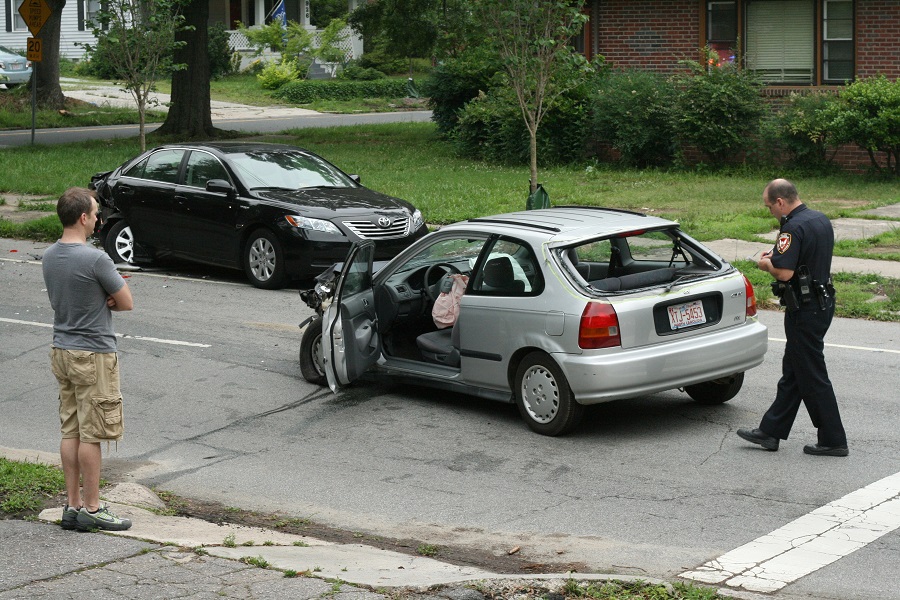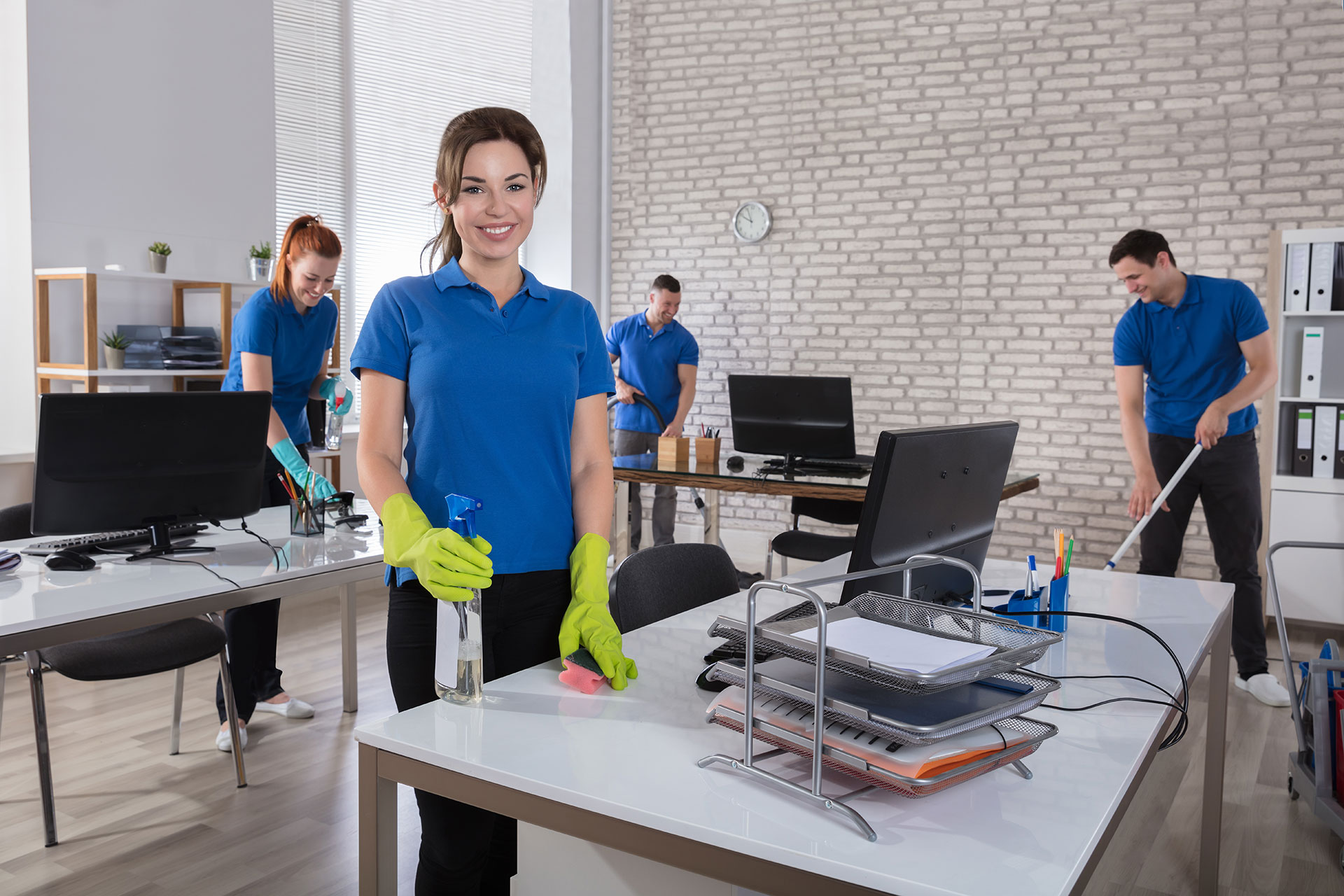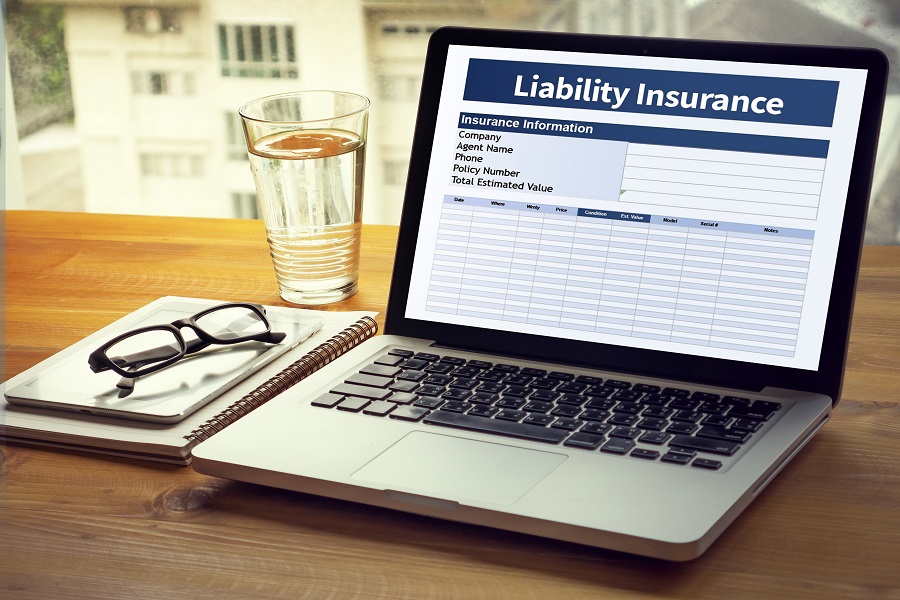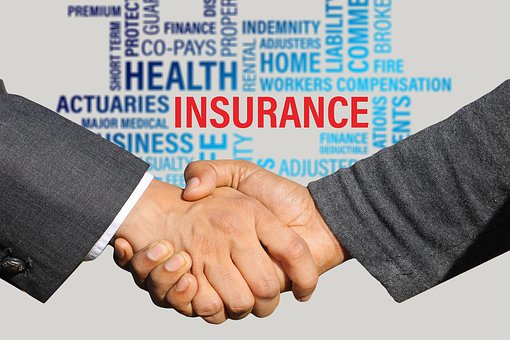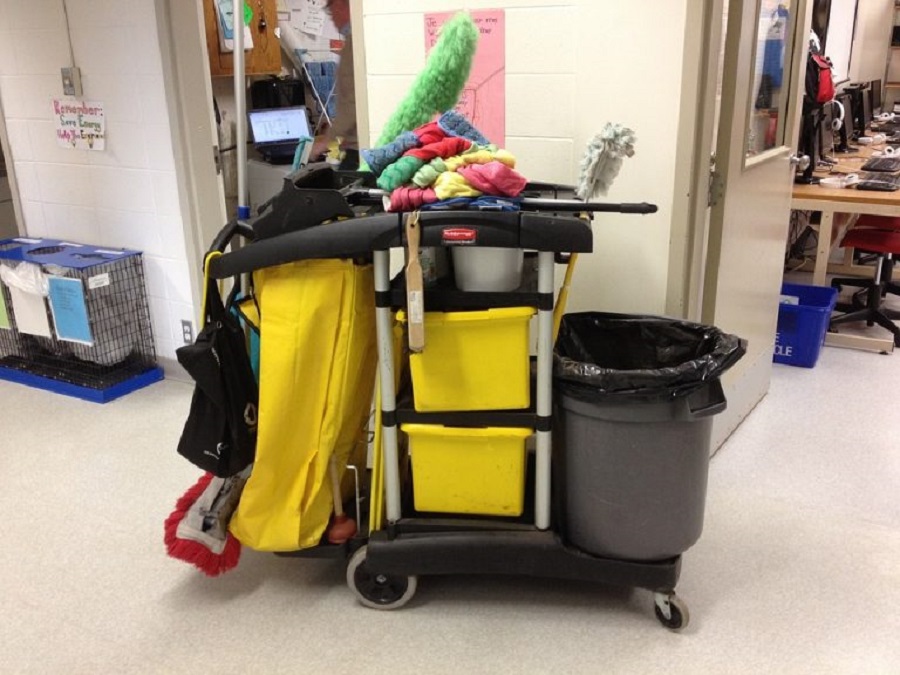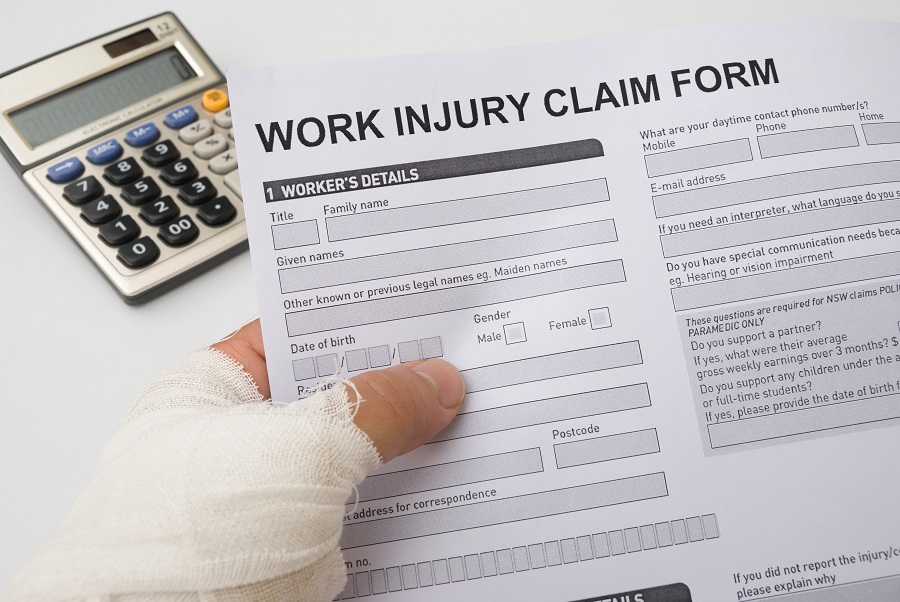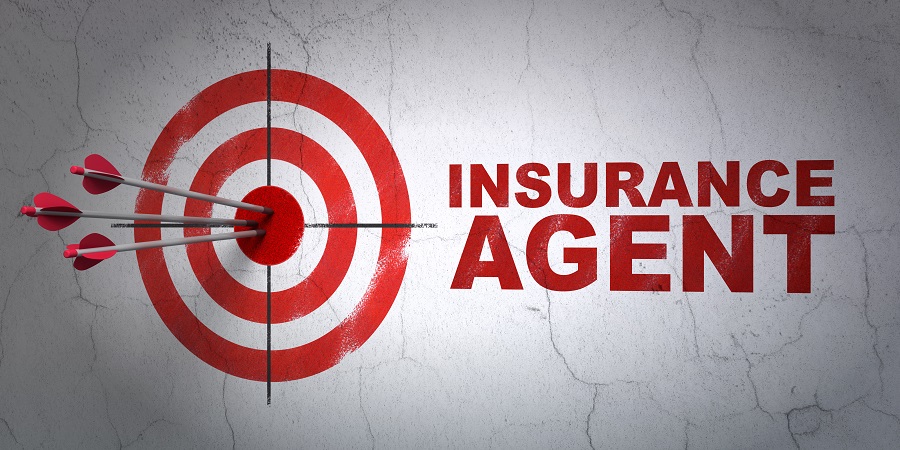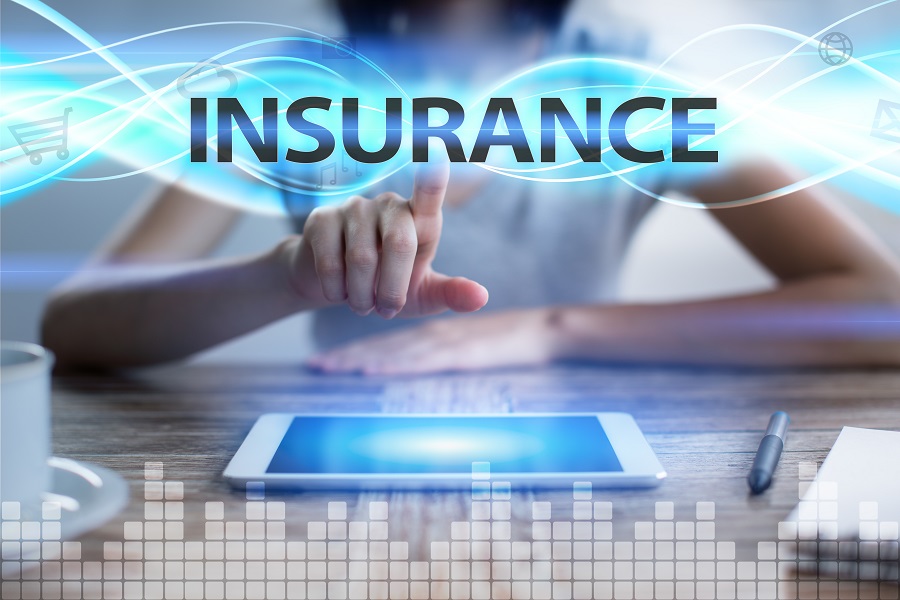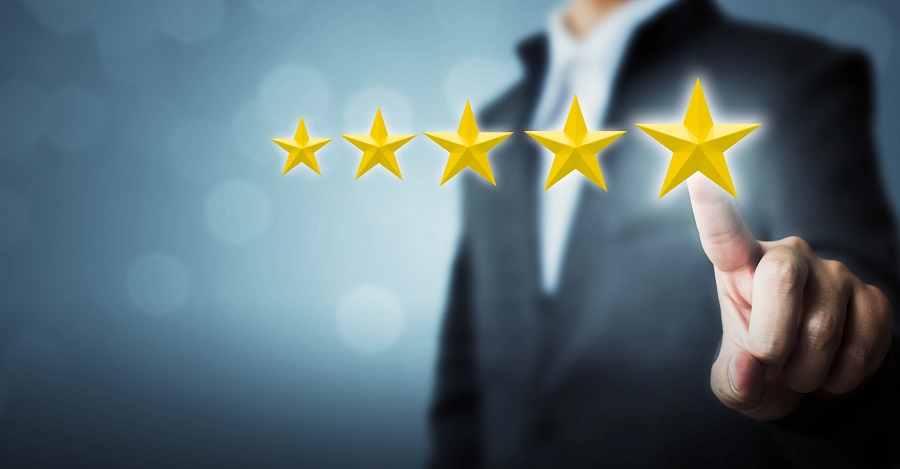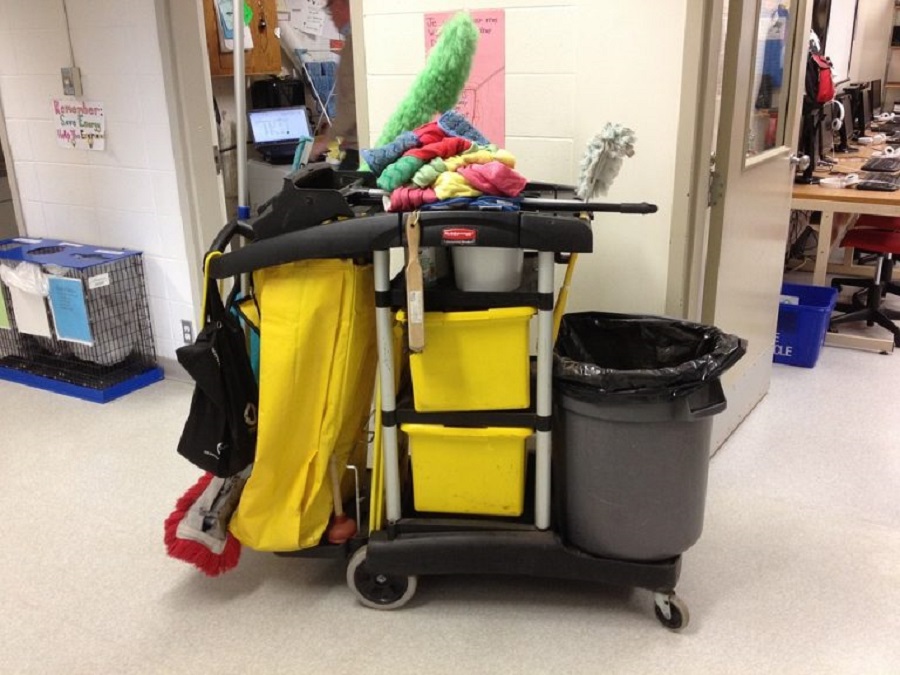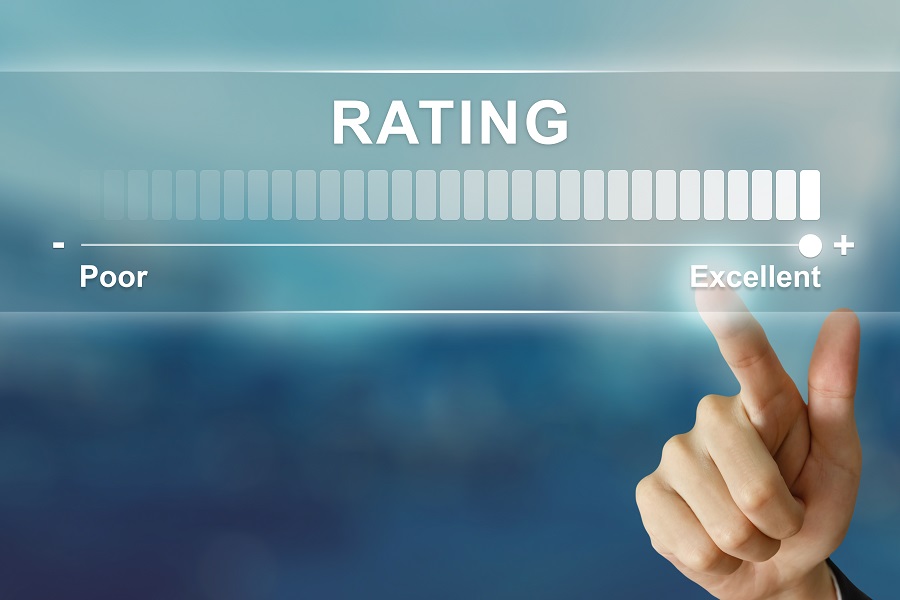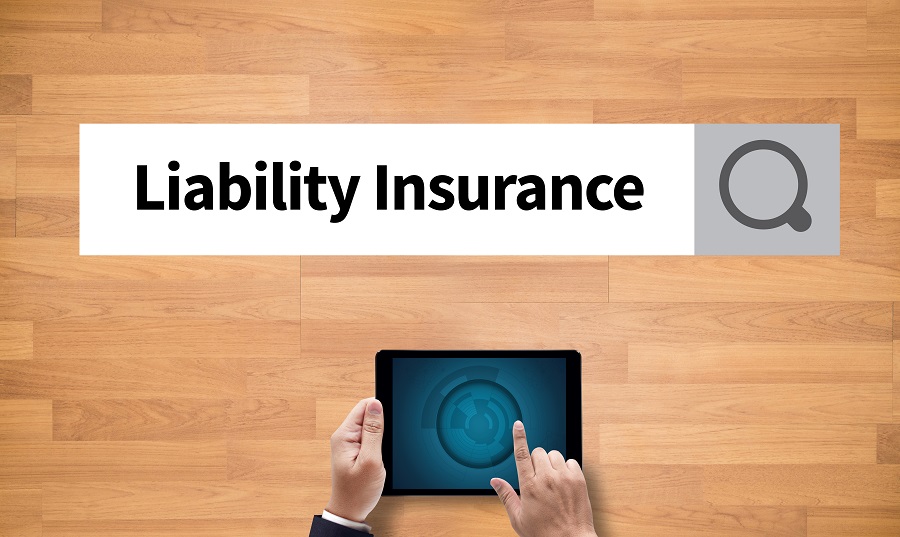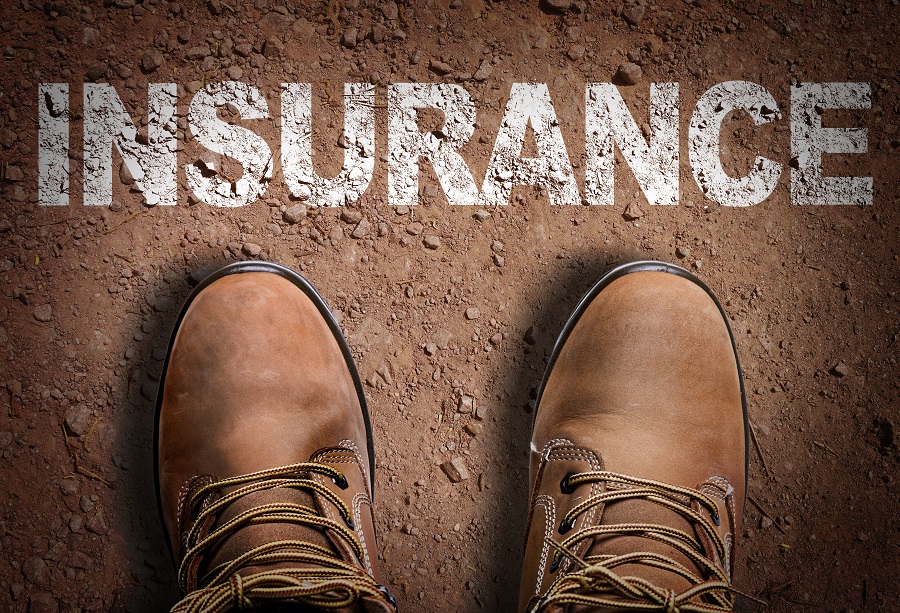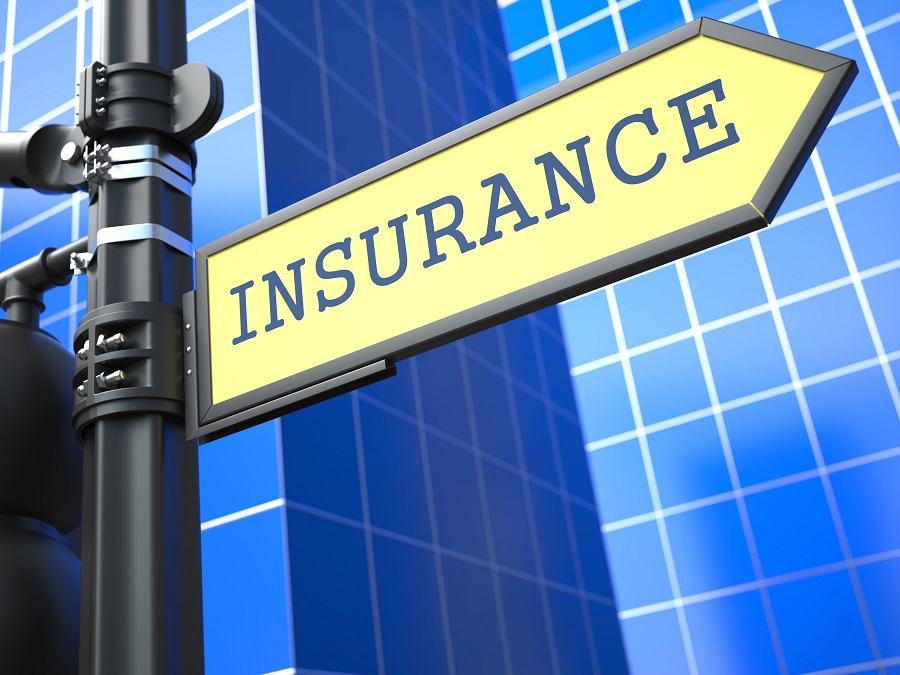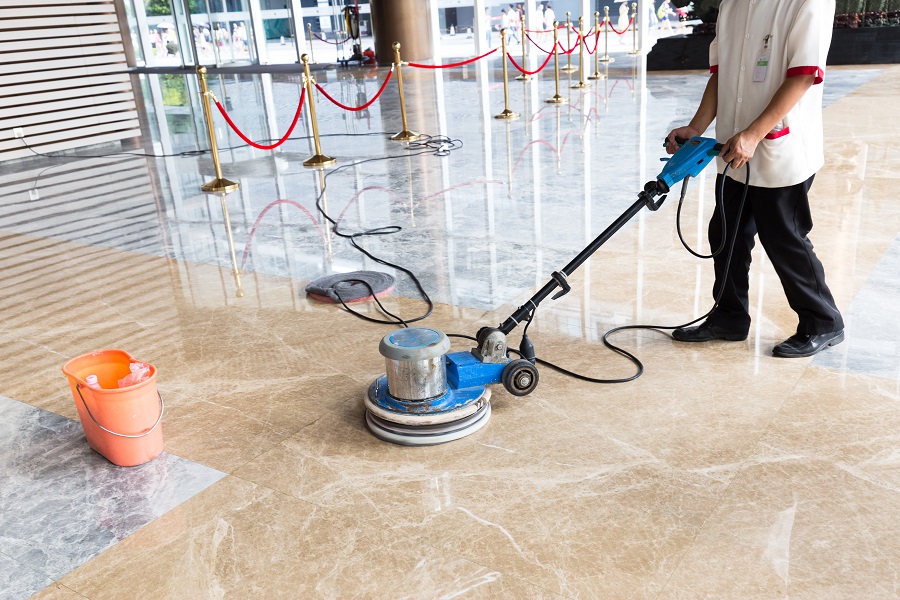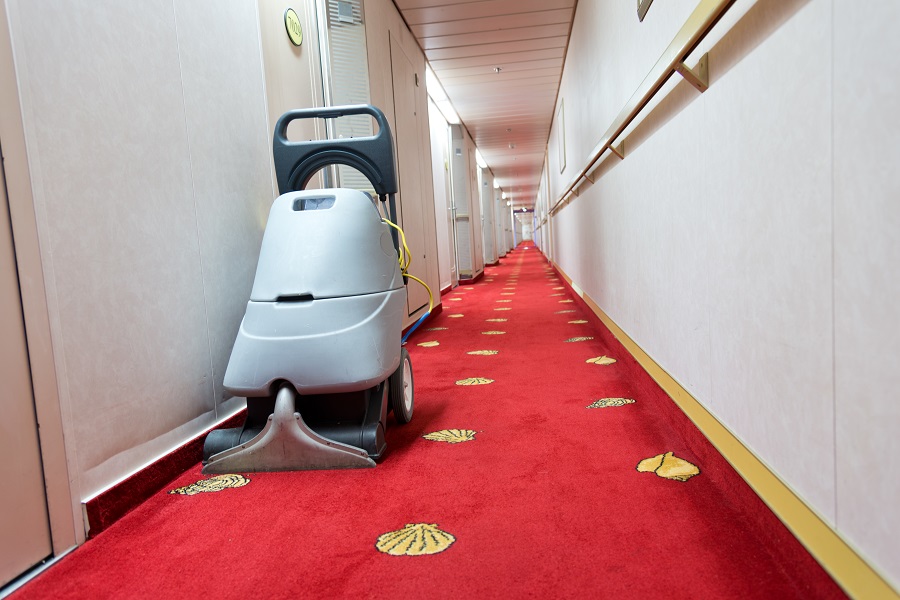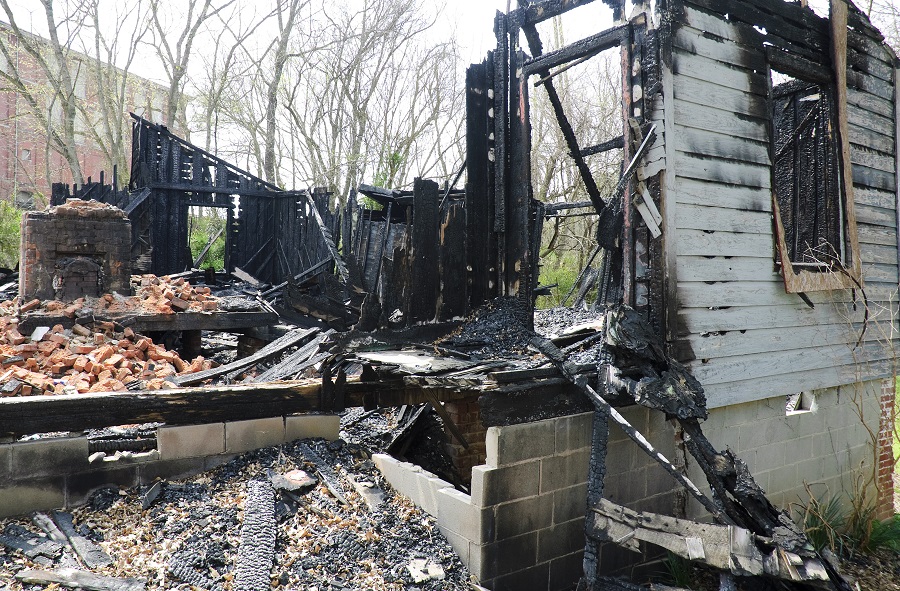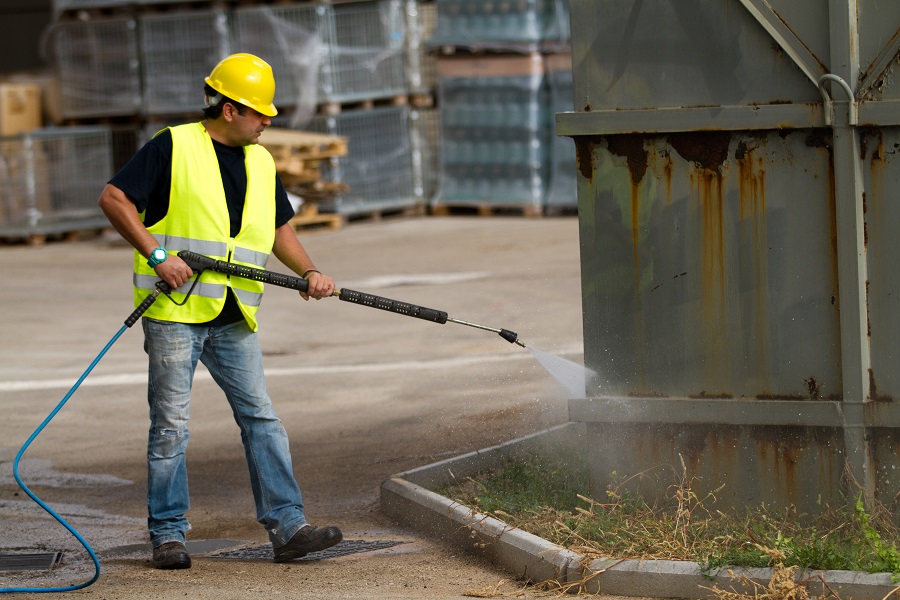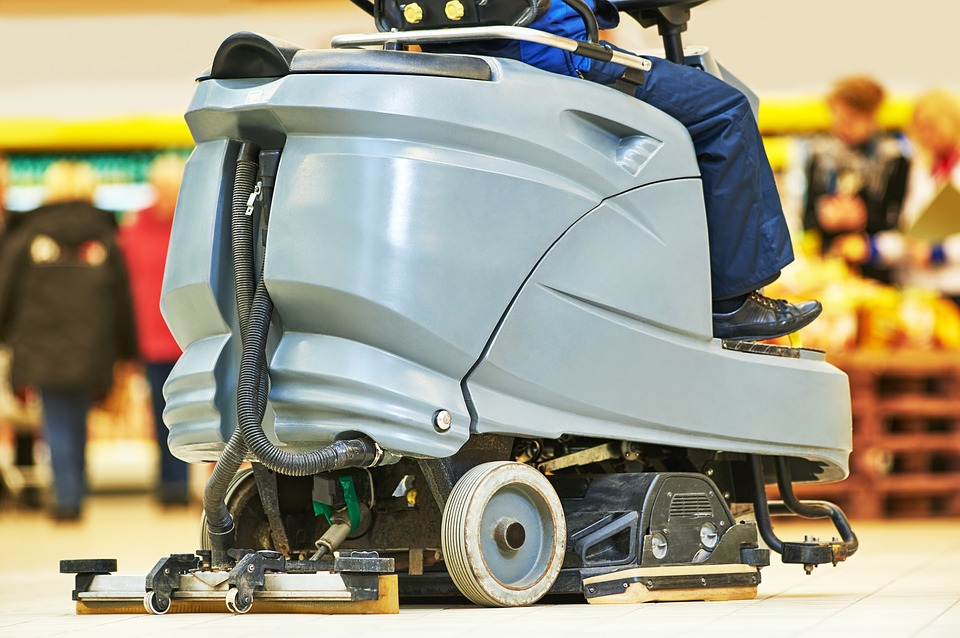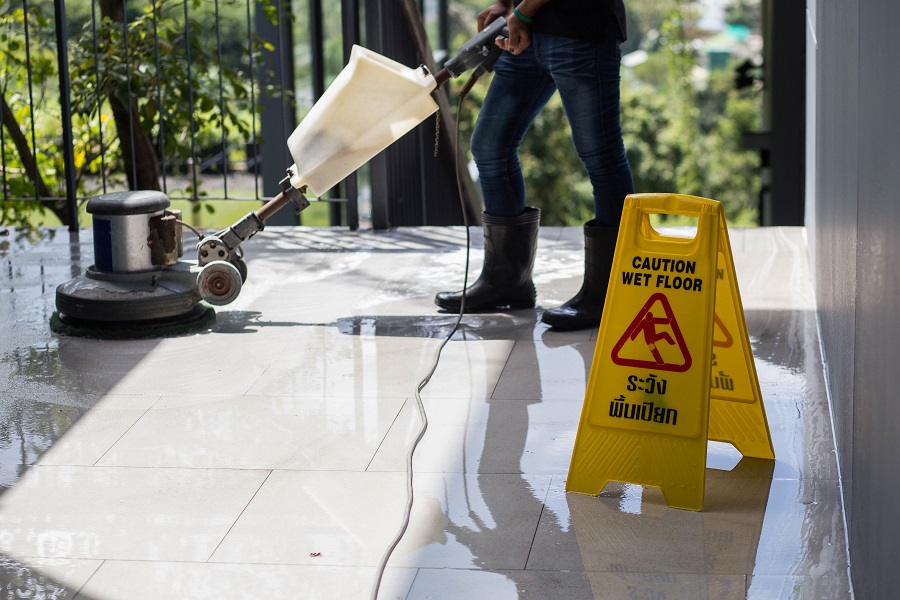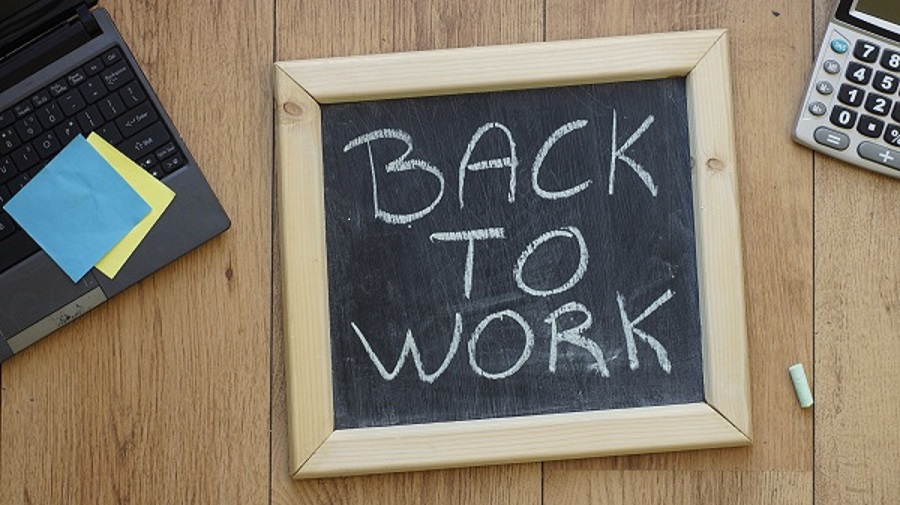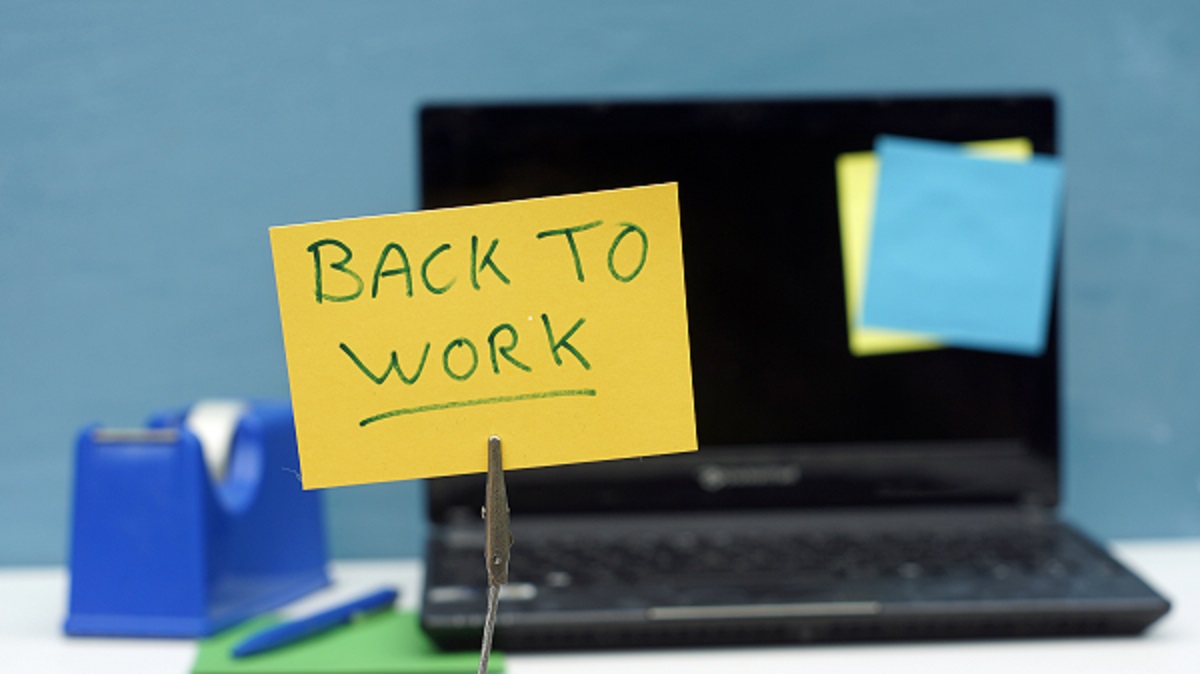Common Tips about Insurance and Risk Management for Janitorial Service Companies
The differences between Janitorial Service and Commercial Cleaning Companies may be slight, but they make the risks involved in operating these businesses quite different. Janitorial Service Companies primarily deal with the daily and weekly ongoing cleaning of a facility. Commercial Cleaning Companies are regularly scheduled, but may come to a facility once or twice a year to perform specific deep cleaning. Because of these differences, the type of equipment used by the employees is drastically different and the nature of the work is different as well. Janitorial Service Companies have needs that are specific to each individual business and each individual property being cleaned. Here are five types of insurance policies every janitorial service company should have, three risks most companies face, and three additional tips for Janitorial Service Business Owners.
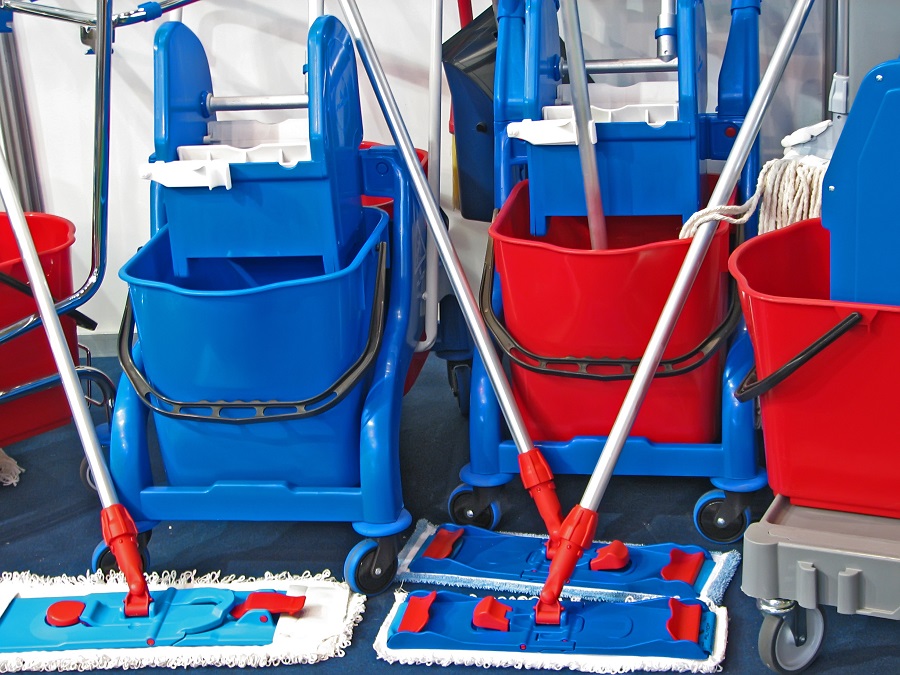
General Liability Insurance
General Liability will cover your businesses liability to third parties for damages involving bodily injury and property damage. A common example of a need for this policy is a customer slipping and falling in a retail store after an employee of a janitorial service company has mopped the floor. The liability of this injury is with the janitorial service company and not with the retail store. This is why it is always best to clean the facilities when the business is open to the public. In most cases it is even better to clean the facility in the evening and not right before the business opens.
Workers Compensation for Janitorial Service Companies
Workers Compensation Insurance is required by law for most janitorial service companies in most states. The workers compensation system is governed by the state governments in the United States. For this reason, the laws may be drastically different from state to state. Some states have exclusions that allow some businesses not to carry this coverage depending upon several factors. It is best to check with the governing body within the state or states you operate in to make sure you are within compliance of the workers compensation system within your state or states.
Inland Marine Insurance
Janitorial Service Companies have lots of specialized equipment. This equipment is typically used and stored at a third party site. If you have a bare bones package of commercial insurance, these pieces of equipment are typically not covered under a basic general liability policy. When the equipment is being transported away from the businesses physical location and when the equipment is being used by the employees at a third party site, the business is liable for any damages to the equipment while being used off site. If a business has equipment that your business depends on and the business does not have enough cash on hand to replace that equipment quickly, the business needs to secure an inland marine insurance policy.
Employee Dishonesty Coverage for Janitorial Service Companies
The nature of the janitorial service industry requires employees to work at a third party location with little to no supervision. No matter how trustworthy a group of employees are, the temptation to steal from a business is too great for many people. This can include employees stealing products from a retail store you are cleaning in the evenings, but it can also include your employee stealing a purse of a customer at a business your business is cleaning. In relation to this risk, it is important to remember that things go missing and when things go missing it is common to blame the cleaning crew. In addition to securing an employee dishonesty insurance policy it is important to be prepared for a day when you or your employees are accused of theft when it did not occur. The perception of the customer is equal to or more important than the truth. In some cases, a situation where your employees are accused of theft can have an enormous impact on your business in the form of Better Business Bureau, Google, and Facebook Reviews. Depending upon the amount of theft that takes place their may be negative press about your business. Depending upon the type of policy you decide to purchase, an employee dishonesty policy can help with the cost to hire a public relations agency to repair the damage to the businesses reputation. No matter the severity of the situation, it is more likely a janitorial service company should secure a employee dishonesty insurance policy.
Commercial Auto Insurance
If you have employees who operate vehicles as a part of their job, you need to secure some form of commercial auto insurance. If you own vehicles and the employees drive those vehicles when on the clock, than you can purchase just a standard commercial auto policy. If you have employees who operate their own vehicles or vehicles you rent for them to use, than you need to secure a Hired and Non-owned Auto Insurance Policy. This type of coverage will cover a business for the liability the business faces when the employees are using a vehicle while on the clock. Even if your employees have their own personal auto policy in place the damages caused by a wreck when they are on the clock are the liability of the business. Even if the employee is at fault or is breaking the law by speeding or breaking another law.

Common Risks for Janitorial Service Companies
In the Janitorial Service Industry, it is important to not only secure proper insurance coverage, but it is equally important to take the proper precautions to not have to use those policies frequently. There are many things that are unique to each individual business and each individual location your business operates, but there are several risks that all janitorial service companies face. Here are three risks you should prepare for in order to keep your business and your employees safe.
Slips, Trips, and Falls
Slips, Trips, and Falls are a risk that many different types of businesses face. The Janitorial Service Industry faces an elevated risk of slips, trips, and falls because of the exposure to the general public at many of the third party locations that are cleaned. Mopping is a huge concern, especially if your employees are cleaning the facility in the morning shortly before customers have access to the building. Training your employees to be aware of this issue and to properly prepare the facility to prevent slips, trips, and falls can have an enormous impact on the amount and severity of insurance claims within you business.
Driving Risk for Janitorial Service Companies
Not all janitorial service companies have employees who operate a vehicle as part of their job duties. Anything you can do to limit or eliminate the amount of time your employees are behind the wheel will lower the amount and severity of insurance claims and lower what you pay for insurance premium. It is important to take some additional time during the quoting process to inform your insurance agent exactly how much and what types of driving your employees do while on the clock. If you rush through this process, your agent may not secure this coverage or they may secure the wrong type of coverage for your business. This can cause a claim to not be covered.
Employee Theft
Unfortunately employee theft is a reality of the janitorial service industry. Some of the accusations are founded, but many are not. Your business is an easy target for blame when something shows up missing at a business. It is important for your business to take theft seriously, but it is equally important to be prepared for the day when your employees are falsely accused of stealing. There are insurance policies to help with the damage caused by this risk, but a small amount of prevention can help stop this from becoming a problem in the first place.
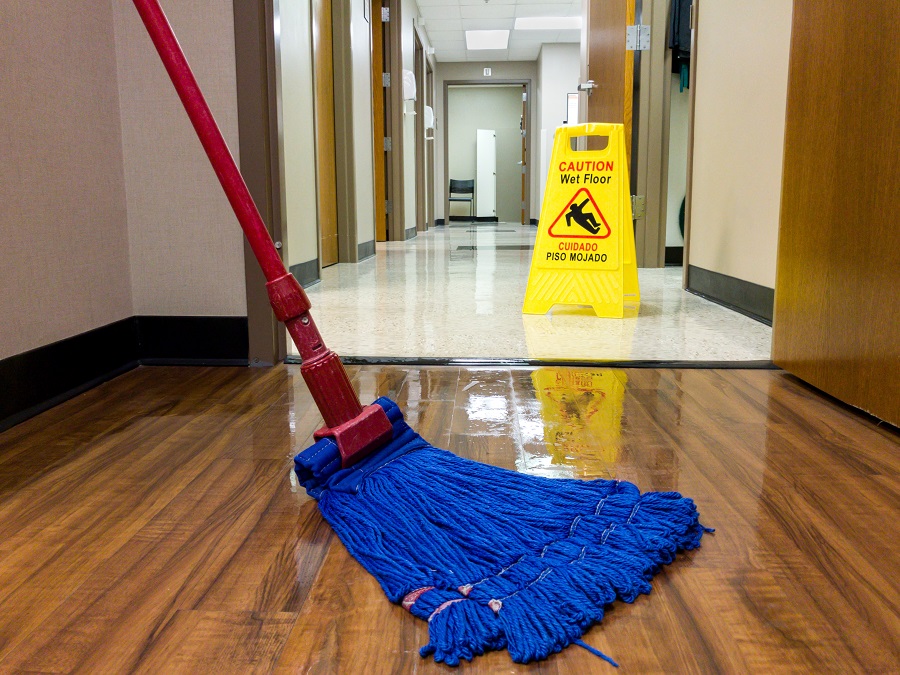
Additional Tips for Janitorial Service Business Owners
Know Your Risks in the Janitorial Service Industry
Every business has risks that are unique to that business. When you add in the fact that your business more than likely operates at multiple third party locations, there are many risks that are unique to you and your business. Having a plan in place for these issues is important.
In the Janitorial Service Industry, risks include injuries to you or your employees from slips, trips, and falls; as well as exposure to dangerous chemicals. You may face , damage to your client’s property, and accidents occurring while traveling to and from work locations. Even a minor injury can turn into costly lawsuits.
Buy Insurance Based on Value, Not on Price
When an accident occurs, no business ever wants to be under insured. In insurance, like many things in life, you get what you pay for. The cheapest coverage is rarely the best policy to have when an accident occurs. At the same time, the most expensive policies may cause you to over pay for coverage you more than likely do not need. This will tie up cash flow that may be need for other business purposes. Take some additional time to speak with your agent about what is important to you when insuring your business. The more honest you are with your agent, the more likely they are to pair your business with the ideal policy.
Classify Your Business Properly for Janitorial Service
In the Janitorial Service Industry, there are numerous classification codes depending upon the scope of your business. Making sure your business is in the right code will clear up many situations that may be come headaches either when an accident occurs or during the end of term audit.
Partner with an Independent Agent who Knows Your Business
Like many aspects of your business, it is important to work with someone that knows your industry. An independent agent is ideal because they are not tied to one or a select few carriers. An independent agent can shop around your policy and make carriers compete for your business. This is where a company like Janisure is ideal because not only our we an independent agency, but our agents specialize in insurance for Janitorial Service Companies. These agents know what issues businesses in this industry face, and how to find the best package of insurance policies to meet your businesses unique needs.
